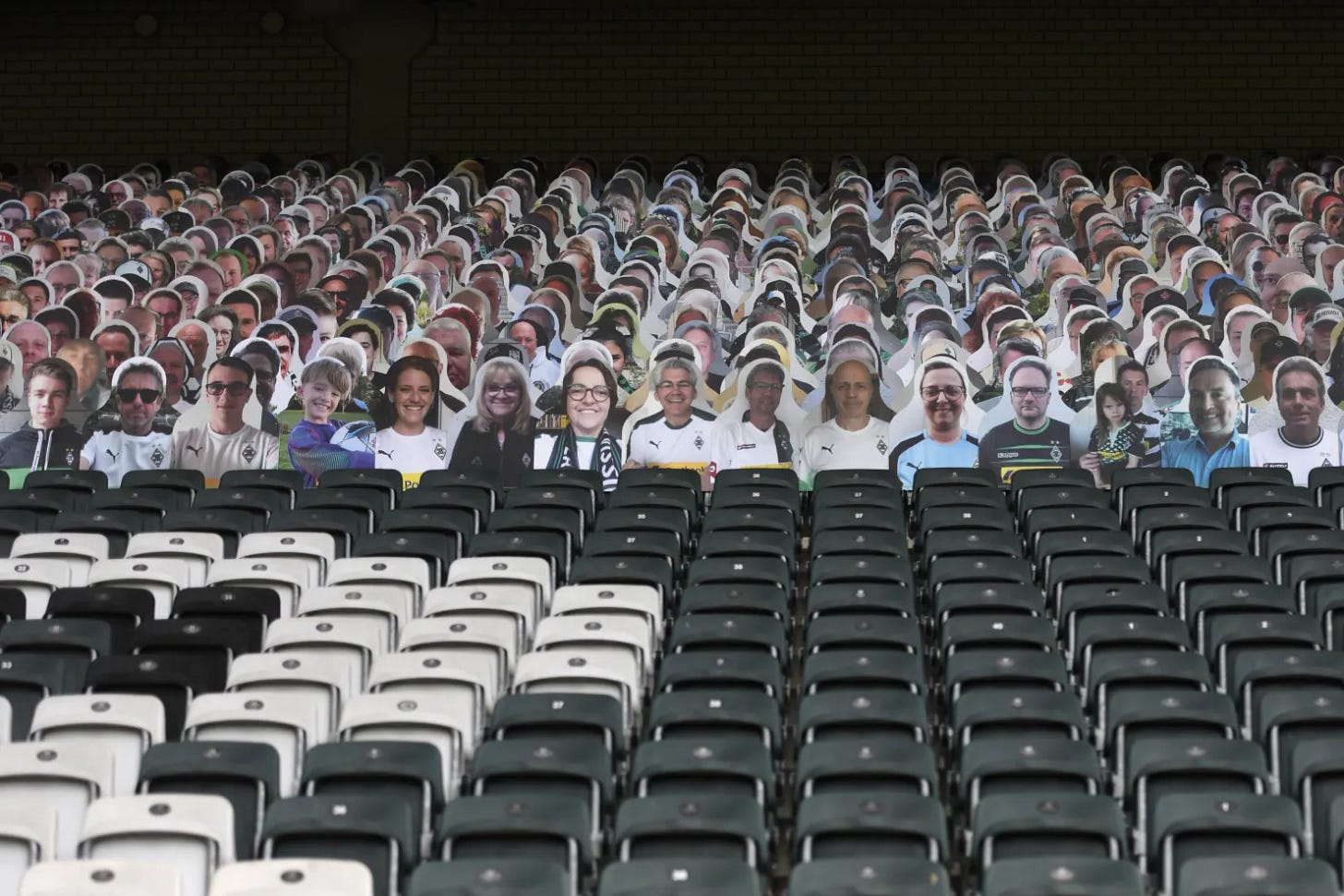[Book review originally published, in slightly edited form, at Quadrant under the title ‘Men - They have their good points’). See https://quadrant.org.au/news-opinions/review/men-they-have-their-good-points/ ]
[A further preamble note - the football agnostics amongst you are free to skip straight down to the subheading: Now, what you’ve all been waiting for: the ‘Covid’ part!]
*******************************************************************************************************
If the dusty, woke literary desert that is contemporary writing in Australia leaves you feeling artistically parched and yearning for the increasingly chimerical ‘good read’, then Helen Garner’s The Season, published at the tail-end of 2024, may just sate your thirst. And, if you like footy which is her artistic canvas this time around, that would be a nourishing bonus.
Now in her eighties, Garner, with a stable of highly-praised novels, stories, diaries, memoirs, essays and reportage to her much-feted name, has, for a feminist literary warrior like herself, ventured into potentially treacherous terrain with her account of the 2023 football season of her grandson, Amby (Ambrose), a ruckman playing for the Flemington Colts Under-16’s local Australian Rules footy team down Werribee way in Melbourne’s outer western suburbs where she attempts to understand the life and mind of men, and boys on the cusp of becoming men, who play the game.
The signs of a non-ideological exploration of the ‘gender enemy’ do not look promising early doors, however. Barely two pages in and I thought, uh-oh, here comes the feminist sermon when this cropped up - “all my life, I’ve fought men, lived under their regimes, been limited and frustrated by their power”. These blunt assertions, owing much to any university ‘Gender Studies’ course, almost made me toss the book at that point but, nil desperandum, I persevered, hoping that Garner’s famed powers of observation and imagination might yet reveal something beyond tired feminist cliché.
Never having birthed a son before, will Garner take a different tack to her male grandchild because of the family connection? And will her twenty-year, latter-day fixation (despite her fogginess about the rules of AFL or what a ‘torp’ is) with the Western Bulldogs, the hardscrabble underdogs and everyone’s favourite second team in the AFL, produce some sort of epiphany in the feminist writer as she seeks to learn about men and boys ‘from a fresh angle’?
There is still some more feminist throat-clearing to deal with, however, as Garner claims to discover boys’ “delicacy, their fragility” (subtext: just like women victims of a man’s world!) and boys’ struggle to “discipline and sublimate their drive to violence”. So, there is still some ‘gender essentialism’ to get out of her system.
Mind you, some of this ‘gender essentialism’ is not entirely without foundation. ‘”People sleep peacefully in their beds at night only because rough men stand ready to do violence on their behalf” is quite a true saying (attributed to all and sundry with Orwell the favourite). After all, which sex would you prefer if you wanted to take out the bad guys who would do you harm? The ‘men’ in that quote is not some generic, all-gender shorthand but is quite sex-specific.
As her book progresses, however, the foundations of Garner’s old feminist philosophy begin to shift. As a feminist Guardianista, she would once have been close to that paper’s worldview that the booing of opposition players on the AFL field is the ‘internalised hatred that men – who are the dominant force in shaping and sustaining AFL culture – have for themselves and for each other’ and that ‘the Great Southern and Ponsford stands [in the MCG] merely provide a haven for the boozed-up, brittle and broken to project their own self-hatred and insecurities on to others’.
Garner, however, is discovering another side to the story – that quote couldn’t describe her own, dear, flesh-and-blood Amby, could it? Footy, she reflects, is more than what the woke social commentators tell us to disparage as the violence and male chauvinism of men’s sport. Sometimes, nearly always actually, footy can be about something other than rotten pathologies like the alleged ‘toxic masculinity’, misogyny, racism, homophobia, etc. of the man’s sporting world. It can be, and Garner gets this, about things like belonging and community, mateship and sportsmanship, testing and growing yourself.
Like many a fan of the game from amongst the intelligentsia, Garner also meditates on the aesthetic and thematic overlap between football and heroic tragedy, in her case the classical drama of ancient Greece, but she is grounded enough to also appreciate the mundane such as the coach’s advice to always lace the boots on the side, not the top, to prevent the ball flying off in an errant direction when kicked. Sometimes footy can be just ‘about’ footy.
By the end of her latest, and possibly last, book (her eyesight, hearing, memory and other bodily essentials are fast packing it in) Garner has discovered that men (and boys) are people, too. Who would have thought it, eh?
Perhaps Garner’s more affable and appreciative view of the male of the species through the lens of football has something to do with the mellowing mood and melancholic aura accompanying her own looming mortality (carrying old ideological enmities to the grave hardly seems worth the perpetual bitterness). Her notebook, which accompanies her failing memory to all training sessions and matches, is a “record of a season we are spending together before [Amby] turns into a man and I die”, and also captures her fear, ultimately, not of the physical travails of ageing but also of becoming redundant and forgotten.
Now, what you’ve all been waiting for: the ‘Covid’ part!
There remains just one further hurdle you will need to prepare yourself for if you are to read the book. For a writer routinely celebrated for her artistic powers of insight, this ability seems to have deserted her during the whole ‘Covid’ (non)pandemic. Football was a lifeline for Garner during ‘Covid’ and its record-breaking lockdowns in Melbourne. Garner, through sheer love of football as a respite from the ‘pandemic’, came to crave the televised lockdown games played to empty stadiums whilst everyone else, to the contrary, found those games sans any crowd atmosphere to be utterly soulless and unwatchable and the cardboard cut-outs of the crowd beyond human endurance.
Garner is an acolyte of all the pandemic theatre, not just lockdown. The RAT test. The self-isolation upon a mostly meaningless ‘positive’ result (besides the opera, a ‘positive’ Covid test is the only thing to cause Garner to miss her grandson’s training and match schedule). The mask, of course, is unquestioned by Garner– she dons one to watch a TV replay with her family next door.
Garner is, of course, also “vaccinated to the eyeballs”, but, as she rues with quickly-aborted insight, “I’ve caught it [Covid]” despite all the virus-fighting paraphernalia in her armoury - “Saturday. Covid hits me a second time. So much for anti-virals”. Despite such hints of disillusion about all the pandemic mitigation baloney, Garner remains a ‘Covid’ Believer to the end, like all those whose minds were robbed of reason by fera and panic.
Garner’s latest book will be forever marred by its preserved-in-amber homage to the antisocial kookiness of the time, a bit like all those replayed reality TV shows filmed during lockdown and limits on venue capacity, and where mask mania sees everyone mouth-ragged except the on-camera talent whose star status apparently wards off the evil Virus of Doom, making an unconscious mockery of the whole thing.
The Covid ‘public health’ syndicate will be pleased by Garner’s pandemic loyalty but it does raise doubts about her ability as a writer to truly, and fearlessly, question, reflect and dig beneath the surface of life. Nevertheless, persevere with the book and we can at least nod along with Garner when she concludes that she can now see “what is grand and noble, and admirable and graceful about men” (but be careful, Helen, that sort of thing could still get you cancelled by the feminist mafia). The Season, despite its annoying flaws, is worth a punt. Even a torp!
The Season
by Helen Garner
Text Publishing
2024 PB 208pp $34.99






Yes, Garner is in the elite class when it comes to wordsmithing but, like all our purported "elites", perception, growth and development of ideas utterly failed them in the hour of Covid.
God how do you get through this? I salute you. I've read Garner and yes, she can write but the sheer blindness to it all ... and by all I mean Covid, mostly. I'm glad her hourglass runs low.